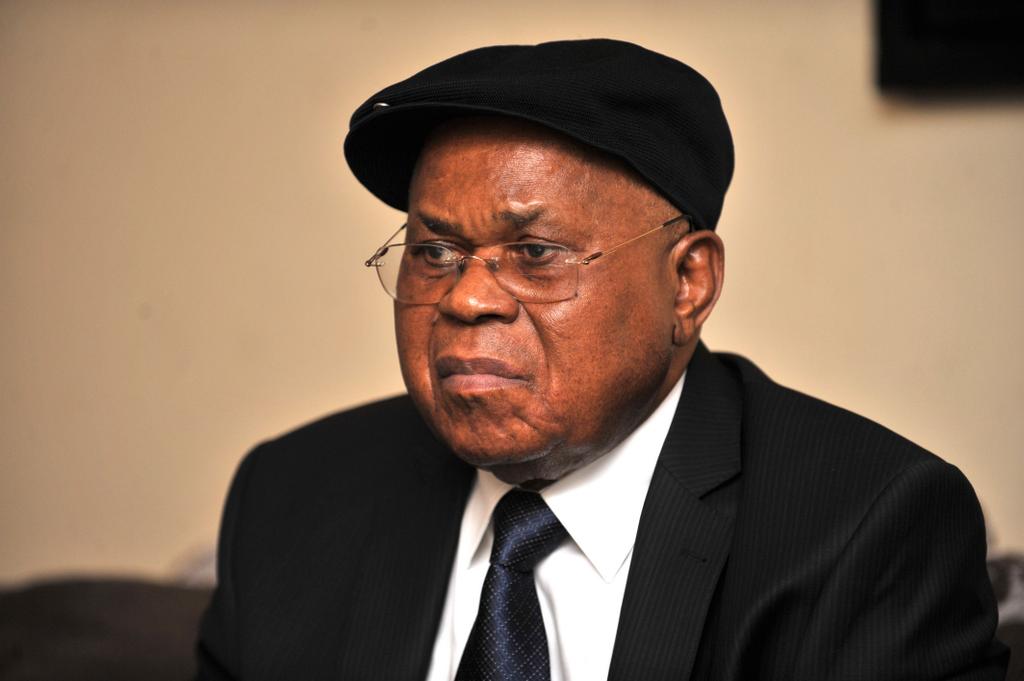
Etienne Tshisekedi wa Mulumba is the cofounder and chairman of Union pour la Démocratie et le Progrès Social (UDPS), roughly since 90s. Born in 1932, in his 80s, the Sphinx of Limete is undergoing health challenges to the extent that this morning he flew to Brussels for undertaking specific treatment due probably to diabetic complications. As a chairman of the main opposition party in the Democratic Republic of Congo (DRC), his absence or the inability to regularly running the party may constitute a blow not only to the UDPS as well as to the radical opposition umbrella in general.
Since 1990, Tshisekedi stood as the leading opposition figure that strongly fought for democracy especially during the earlier period of initiating political pluralism and democracy in the former Zaire. He continued his democracy struggle until recently culminating to the unilaterally sworn in ceremony as an elected president during the 2011 controversial elections. The ceremony of proclaiming himself as the elected president took place at his home in Limete, Kinshasa. However, along his path toward becoming key opposition political figure, he came across some controversial accusations involving him in hampering rule of law principles.
To understand shortly Tshisekedi’s political path, the reader recalls that the charismatic leader is originating in Kassai, from the Luba ethnic community. He was born on 14th Dec 1932 in Kananga, in what was then known as Luluabourg during the colonial era. He obtained a doctor Philosophy in Law from the Lovanium University (currently known as Université de Kinshasa); making him the highly graduated Congolese in the law domain at that time. Since the independence, Etienne Tshisekedi, commonly named Tshitshi has occupied different public positions in then Zaire.
From 1961-65, Tshitshi was the Rector of the National School of Law and Administration (École nationale de droit et d’administration “ENDA”). In the earlier beginning of Mobutu’s regime in 60s, he got appointed as a Minister of interior and traditional chieftaincy affairs[1], then justice deputy minister[2] to member of the parliament in earlier 80s. In 1967, the current UDPS chairman is cited among key leading who conceived the elaboration of the constitution as well as the N’sele Manifesto that established the Popular Movement for Revolution (Mouvement Populaire de la Revolution “MPR”), the Mobutu’s single-party regime.
Though closely allied to DRC’s former president Mobutu, Tshitshi might have fallen out with the former due to how the N’sele manifesto would have allowed two political parties instead of one. Finally, President Mobutu decided unilaterally to implement the one-party state and dragging his former ally, Tshisekedi away. As then National Assembly President Kalume passed away, the fall out must have triggered the nomination of the parliament president Nzondomio Adokpelingbo while Tshisekedi was in a legal position for being appointed. The decision of replacing Tshitshi who would have been the legitimately forthcoming appointee seemed to have fuelled the sense of opposing Mobutu’s regime.
In 90s during the democratization and pluralism wave that shook dictatorship regimes, including that of Mobutu, Etienne Tshisekedi found room to rise. Tshitshi got nominated as Prime Minister of former president Mobutu on 29 Sept 1991. The nomination lasted only few weeks and he was deposed on 1st Nov 1991. The Sovereign National Conference (Conference Nationale Souveraine) held in 90s under Cardinal Laurent Monsengwo Pasinya led to an agreement of nominating again Tshisekedi as prime minister. He went appointed on 15th Aug 1992 and removed once again on 5 Feb 1993. Furthermore, during the L.D Kabila campaign, as the AFDL rebellion was advancing towards Kinshasa as well as capturing different cities and towns leaving the country as deeply ungoverned, Tshisekedi was once more nominated as Prime Minister for only one week between 2-9 Apr 1997. Details on Tshisekedi’s biography can be found on this link.
Since then, Etienne Tshisekedi remained the declared opponent to Kabila’s family regime. It even happened that during the L.D Kabila’s power, Tshisekedi got deported to his village in Kassai, living in a house arrest. In 1998, the commission established by L.D Kabila’s regime aiming to elaborate a new constitution announced terminating Tshisekedi’s political rights due to his allegedly involvement in Lumumba’s assassination and the 60s dismantle of the latter’s allies. These accusations remained unanswered in convincible way from the ‘defendant’. He then patchily fought non-violently to get the Kabila’s regime ousted by either boycotting elections or referendum as well as joining lately the elections. He recently consider himself as the elected president of the 2011 controversial elections to the extent he was roughly running the country in his office at home with lesser control over the country’s administration.
Recently, Tshisekedi’s health was likely concerning observers as he spent much time without public appearances; though claiming being the elected president. Some sources did even think that he is being critically ill to the extent of having difficult to interact with people. He flew to Brussels to more appropriate treatment and the blogger hopes and prays that he will recover to continue his struggle for democracy and social progress as it is embedded in the title of his party. However, in his 80s alongside struggles he fought, diverse imprisonment and psychological stresses he went through all along his path are less promising signs that he will again be stronger. The concern seems rather pointing to his legacy and what is the future of UDPS and the opposition in general ahead of 2016 elections.
Even though not applicable to all political parties, the Congolese management of power within the political parties is likely similar to what they thought fighting against with the rulers. The general picture of UDPS seems raising a question over its preparedness to manage succession procedures during the absence of Tshisekedi or his inability to lead. It is roughly sounding that the selection and discontent over who is the next leader of UDPS has already created a shadow over Tshitshi political party management. In addition, the removal of Albert Moleka as cabinet director might have shed light on what can be expected in case the charismatic leader of Limete may unable to rule over his party. The recent public appearances of Felix Tshisekedi signal that UDPS management is likely to fall under traditional chieftaincies succession from farther to children. It is also a sign that the future of Tshitshi political party remains to a larger extent in the hand of his family capacity to manage the succession than the ideological side. Hence, it is possible to expect infighting and discontent around the succession that could weaken the leading political party during elections period that begin next year.
Nonetheless, the absence of Etienne Tshisekedi won’t affect only the UDPS. As long as this leading party will be struggling over succession and new mechanisms to keep cohesion; this will undoubtedly affect the opposition ahead of 2016 elections. Informed observers have realized how these political parties have hardly managed to get organized to the extent of sticking on their leaders even under house arrest. The experience tends to convince the blogger that the same could happen within the UDPS; hence creating a loop within the opposition that needs to work round the clock towards the 2016 presidential elections. Furthermore, as Tshisekedi was recently seen as approximately the radical opposition leading due to UDPS weight, his illness leaves the opposition struggling over who is heading the group of radicals.Besides lacking long term perspectives, an “infighting’ between different factions may erupt to get a compromise over a figure who will represent radicals during the forthcoming elections. Wait and see in the near future.
Ntanyoma R. Delphin
Twitter account @delphino12
Email: rkmbz1973@gmail.com
Blog: www.edrcrdf.wordpress.com
[1] Commissaire Général des Affaires Intérieures et Coutumières in french
[2] The position of minister was called in french “commissaire général”


Reblogged this on My Ciluba.
I would like to thank you for the efforts you have put in penning this
site. I really hope to check out the same high-grade
blog posts from you later on as well. In fact, your creative writing abilities has inspired me to
get my own, personal site now 😉